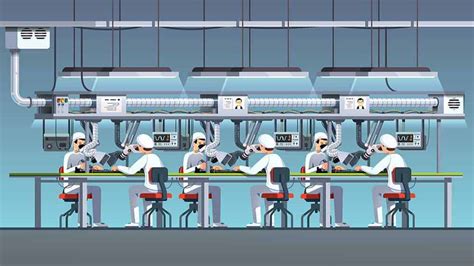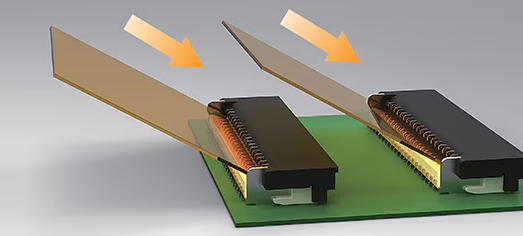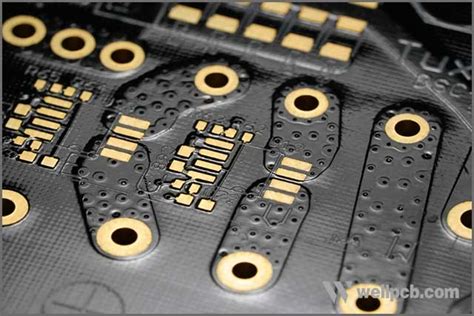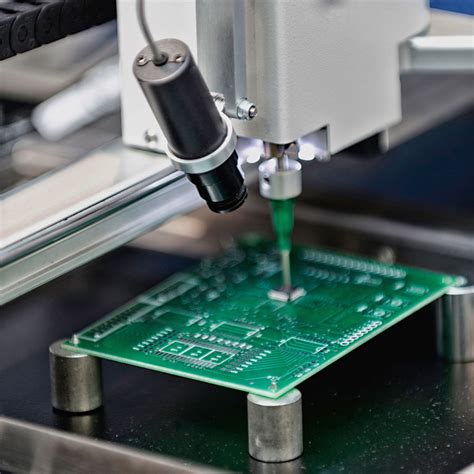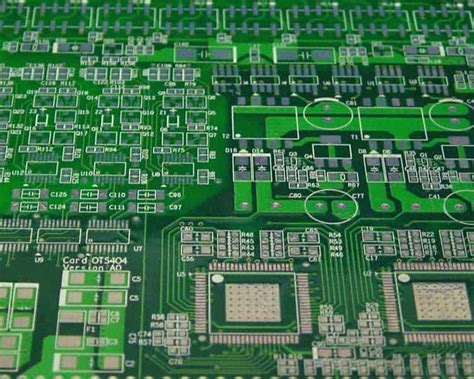Streamlining Electronics Production Through PCB Contract Manufacturing
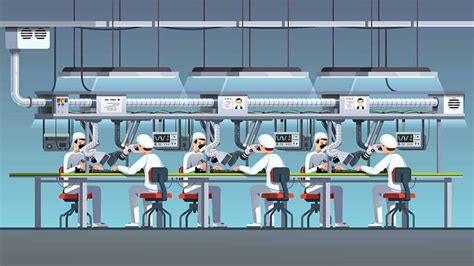
Key Takeaways
Engaging a PCB assembly contract manufacturer enables businesses to achieve significant operational efficiencies in electronics production. By leveraging specialized expertise in PCBA processes, companies can reduce capital expenditures on equipment and personnel while maintaining access to state-of-the-art manufacturing technologies. This approach not only lowers upfront costs but also minimizes risks associated with supply chain fluctuations.
A critical advantage lies in the ability to scale production volumes dynamically. Contract manufacturers often provide flexible solutions tailored to demand cycles, allowing brands to pivot quickly between prototyping and full-scale runs. This agility is particularly valuable in industries where time-to-market dictates competitive advantage.
| Benefit | Impact |
|---|---|
| Cost Efficiency | Reduced overhead and material waste |
| Accelerated Production | Faster prototyping and batch processing |
| Quality Assurance | Compliance with ISO/industry standards |
| Scalability | Seamless transition between product phases |
Additionally, rigorous quality control protocols embedded in PCB assembly workflows ensure consistent output, mitigating defects and rework. OEMs benefit from streamlined logistics, as contract partners often manage component sourcing, inventory, and testing—freeing internal teams to focus on innovation. By aligning with experienced PCBA providers, businesses can optimize resource allocation while maintaining stringent quality benchmarks.
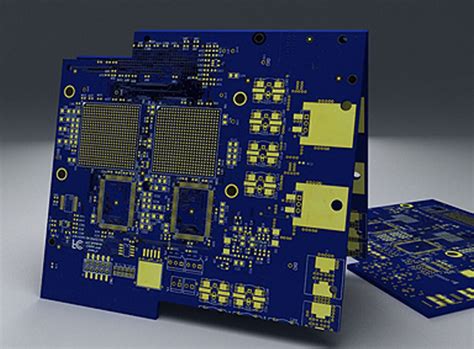
Cutting Costs with PCB Contract Manufacturing
Leveraging PCB assembly contract manufacturers enables businesses to significantly reduce production expenses while maintaining technical precision. By outsourcing PCBA processes to specialized partners, companies eliminate upfront investments in equipment, facility upgrades, and skilled labor training. Contract manufacturers achieve economies of scale through strategic component sourcing and optimized material procurement, passing cost savings to OEMs. Advanced PCB assembly lines further minimize waste through automated placement systems and real-time defect detection, reducing rework rates by up to 40% compared to in-house operations.
Additionally, flexible pricing models—such as volume-based discounts and just-in-time inventory management—allow businesses to align expenditures with project demands. This approach not only lowers per-unit costs but also mitigates financial risks associated with market fluctuations. By integrating PCBA expertise into their supply chains, manufacturers can redirect capital toward R&D or market expansion while ensuring consistent production quality. Such partnerships create a holistic cost-control framework, addressing both direct manufacturing expenses and indirect overheads like logistics and compliance management. This operational efficiency forms the foundation for scalable growth in competitive electronics markets.
Accelerating Time-to-Market via PCB Assembly
In today’s fast-paced electronics industry, reducing time-to-market is critical for maintaining competitive advantage. Partnering with a PCB assembly contract manufacturer enables companies to leverage specialized expertise and infrastructure, effectively compressing development cycles. Advanced manufacturing technologies, such as automated PCBA lines and surface-mount device (SMD) placement systems, allow rapid prototyping and high-volume production without compromising precision.
By outsourcing PCB assembly, businesses avoid delays caused by in-house resource limitations. Contract manufacturers streamline processes like design validation, component sourcing, and multi-stage testing—eliminating supply chain bottlenecks and accelerating product iterations. Additionally, their established networks with global suppliers ensure timely access to critical materials, even during shortages.
A key advantage lies in parallel workflows: while OEMs focus on R&D and marketing, PCBA partners handle manufacturing logistics, including ISO-certified quality checks and compliance with industry standards. This division of labor reduces time spent on administrative tasks, enabling faster regulatory approvals and market entry. For startups and scale-ups, this agility translates to capturing market opportunities before competitors, turning speed into a strategic asset.
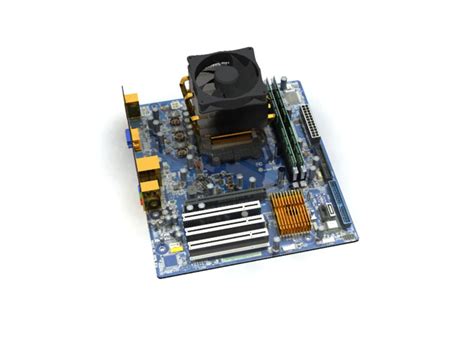
Scalable Solutions for Electronics Production
Modern PCB assembly contract manufacturers provide scalable frameworks that adapt to fluctuating production demands, enabling businesses to align output with market needs without overextending resources. By leveraging PCBA (Printed Circuit Board Assembly) expertise, companies gain access to specialized infrastructure—such as high-speed pick-and-place systems and automated soldering technologies—that scales seamlessly from prototype batches to full-scale production. This flexibility eliminates the need for costly upfront investments in equipment or labor, allowing brands to pivot quickly in response to shifting consumer trends or supply chain disruptions.
A key advantage lies in the ability to optimize production tiers. Contract manufacturers deploy modular workflows, where PCB assembly lines can be reconfigured to handle varying complexities, from single-layer boards to multi-component PCBA designs. This approach not only reduces lead times but also ensures consistent quality across volume thresholds. Advanced inventory management systems further enhance scalability by synchronizing component procurement with real-time order data, minimizing bottlenecks.
For OEMs, partnering with PCB assembly experts translates to agility. Whether ramping up for seasonal demand or testing niche markets, scalable PCBA solutions provide a strategic buffer against operational risks. This adaptability is reinforced through rigorous process standardization, ensuring that scaled operations maintain the same precision as smaller batches—a critical factor in industries like medical devices or automotive electronics where reliability is non-negotiable.
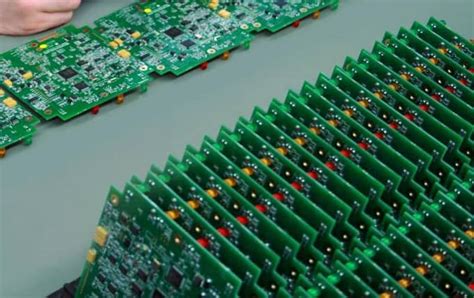
Quality Control in Contract PCB Manufacturing
Effective PCB assembly processes rely on rigorous quality control frameworks to ensure reliability across high-volume production. Contract manufacturers implement multistage inspection protocols, beginning with automated optical inspection (AOI) to detect soldering defects and component misalignments. Advanced X-ray inspection systems further analyze hidden connections in PCBA units, particularly for ball grid array (BGA) components. Statistical process control (SPC) tools monitor production trends, enabling real-time adjustments to minimize deviations.
To meet international standards like IPC-A-610 and ISO 9001, manufacturers deploy traceability systems that track materials from procurement to final testing. Environmental stress screening (ESS), including thermal cycling and vibration tests, validates product durability under operational conditions. These measures not only reduce field failure rates but also align with OEMs’ demand for PCB assembly partners capable of maintaining defect rates below 0.1%. By integrating these practices, contract manufacturers ensure seamless scalability while safeguarding brand reputations through consistent output quality.
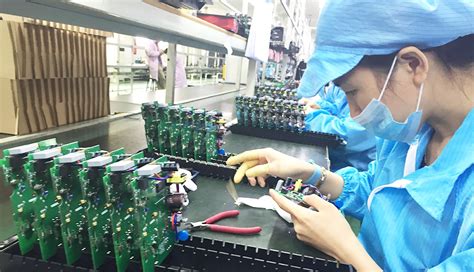
Why OEMs Partner with PCB Manufacturers
Original Equipment Manufacturers (OEMs) increasingly rely on PCB assembly contract manufacturers to navigate the complexities of modern electronics production. By outsourcing PCBA processes, OEMs gain access to specialized expertise, advanced manufacturing technologies, and economies of scale that would be cost-prohibitive to develop in-house. This collaboration allows brands to focus on core competencies like product design and market strategy, while PCB manufacturers handle intricate tasks such as component sourcing, solder paste application, and automated optical inspection (AOI).
Tip: When selecting a PCB assembly partner, prioritize suppliers with certifications like ISO 9001 and IPC-A-610 to ensure adherence to global quality benchmarks.
Scalability is another critical driver. PCBA contractors offer flexible production capacities, enabling OEMs to adjust volumes based on demand fluctuations without investing in additional infrastructure. This agility is particularly valuable for startups and enterprises launching products in fast-paced markets. Moreover, rigorous quality control protocols—including functional testing and failure analysis—minimize defect risks, reducing costly rework and protecting brand reputation.
By leveraging the technical proficiency of PCB manufacturers, OEMs can accelerate prototyping cycles, mitigate supply chain disruptions, and maintain compliance with evolving industry standards. This strategic partnership not only optimizes operational efficiency but also positions businesses to respond swiftly to emerging opportunities in the electronics sector.
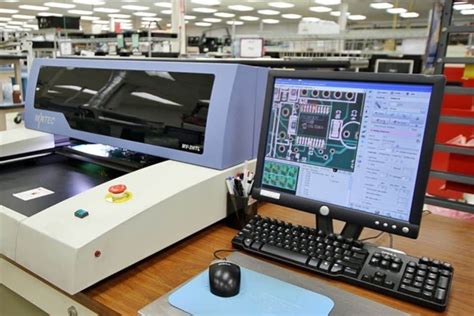
Optimizing Production Through PCB Contractors
By leveraging PCB assembly expertise, electronics manufacturers achieve streamlined workflows that align with dynamic production demands. Specialized PCBA contractors deploy advanced automation tools and process optimization strategies, reducing bottlenecks in component placement, soldering, and testing phases. This operational agility allows businesses to scale output without compromising precision, particularly when managing high-mix, low-volume (HMLV) orders or rapid prototyping cycles.
A key advantage lies in the integration of design-for-manufacturability (DFM) insights early in the development phase. Contract manufacturers analyze board layouts, material selections, and thermal management requirements to preemptively address potential assembly challenges. For instance, optimizing pad sizes or solder mask configurations during PCB assembly minimizes rework rates, accelerating throughput. Additionally, just-in-time inventory systems managed by contractors mitigate material waste, further enhancing cost efficiency.
The symbiotic relationship between OEMs and PCBA partners also fosters continuous improvement through real-time data analytics. Performance metrics from pick-and-place machines, reflow ovens, and automated optical inspection (AOI) systems enable proactive adjustments, ensuring consistent yield rates. Such collaborative frameworks not only refine production timelines but also fortify product reliability—a critical factor in maintaining competitive edge across industries.
PCB Assembly Partners for Market Readiness
In fast-paced electronics markets, aligning with PCB assembly contract manufacturers ensures products meet launch timelines without compromising performance. These partners specialize in translating design concepts into functional PCBA units, leveraging advanced manufacturing workflows to address challenges like component shortages or design-for-manufacturability (DFM) gaps. By integrating scalable production lines and just-in-time inventory systems, they enable OEMs to pivot swiftly in response to fluctuating demand or last-minute specification changes.
A critical advantage lies in their ability to harmonize quality control protocols with regulatory requirements, ensuring compliance across global markets. For instance, automated optical inspection (AOI) and X-ray testing are routinely applied to detect micro-defects in high-density interconnect (HDI) boards. Moreover, seasoned PCB assembly providers often maintain pre-certified processes for industries like automotive or medical devices, reducing validation cycles by up to 40%. This operational agility, paired with expertise in miniaturization and mixed-technology assembly, positions brands to capitalize on emerging opportunities while mitigating risks associated with in-house production bottlenecks.
Electronics Efficiency with Contract Manufacturing
Modern electronics manufacturers achieve operational efficiency by collaborating with specialized PCB assembly partners. Contract manufacturers streamline production through optimized workflows, leveraging economies of scale and advanced PCBA technologies to reduce per-unit costs while maintaining precision. By outsourcing PCB assembly, companies avoid upfront investments in equipment, training, and facility upgrades, reallocating capital toward innovation and market expansion.
A key advantage lies in the integration of automated systems – from surface-mount technology (SMT) lines to AI-powered inspection tools – which minimize human error and accelerate throughput. Contract partners also implement just-in-time inventory management, synchronizing component procurement with production schedules to eliminate bottlenecks. This approach not only reduces waste but ensures faster adaptation to design changes or demand spikes.
Furthermore, PCBA specialists enhance efficiency through standardized testing protocols, such as in-circuit testing (ICT) and functional validation, which identify defects earlier in the cycle. By aligning with contract manufacturers, brands gain access to cross-industry insights, enabling the adoption of leaner processes refined across multiple client projects. The result is a scalable, resource-smart ecosystem that maintains quality while compressing time-to-production – a critical factor in today’s fast-evolving electronics landscape.
Conclusion
In the evolving landscape of electronics manufacturing, partnering with a PCB assembly contract manufacturer has proven to be a strategic move for businesses aiming to balance efficiency, cost, and innovation. By leveraging specialized expertise in PCBA processes, companies can eliminate bottlenecks in production while maintaining strict adherence to industry standards. This collaboration not only reduces overhead costs but also ensures that scaling operations aligns seamlessly with market demands, whether for prototyping or high-volume runs.
The integration of advanced technologies and rigorous testing protocols by contract manufacturers underscores their role in delivering reliable, market-ready products. For OEMs, this translates to faster time-to-market without compromising on the precision required for complex circuitry. Furthermore, the flexibility offered by these partners allows businesses to adapt swiftly to design changes or emerging trends, reinforcing their competitive edge.
Ultimately, the synergy between innovative PCB assembly solutions and a manufacturer’s commitment to quality creates a foundation for sustainable growth. As industries continue to prioritize agility and cost-efficiency, the value of trusted PCBA partnerships will remain central to achieving long-term success in electronics production.
FAQs
How does partnering with a PCB assembly contract manufacturer reduce production costs?
By leveraging economies of scale and advanced PCBA processes, contract manufacturers minimize material waste and labor expenses. They also negotiate bulk pricing for components, passing savings to OEMs while maintaining quality standards.
What ensures consistent quality in PCB assembly outsourcing?
Reputable contractors implement automated optical inspection (AOI), X-ray testing, and functional testing protocols. These steps, combined with ISO-certified workflows, guarantee reliability across high-volume production runs.
Can PCBA partners adapt to sudden changes in product demand?
Yes, scalable manufacturing models allow rapid adjustments to production volumes. Contractors maintain flexible inventory management systems and modular production lines to accommodate spikes or dips without delays.
How do PCB assembly services accelerate time-to-market?
Integrated supply chains and pre-validated design templates streamline prototyping and mass production. Contract manufacturers also handle certifications and compliance, reducing administrative bottlenecks for OEMs.
What risks arise from choosing an inexperienced PCBA provider?
Poor component sourcing, inconsistent soldering quality, and inadequate testing may lead to field failures. Partnering with established vendors mitigates these risks through proven expertise and robust quality assurance frameworks.
Ready to Optimize Your Electronics Production?
For tailored PCB assembly solutions that align with your project’s needs, please click here to explore expert services designed to enhance efficiency and market readiness.

